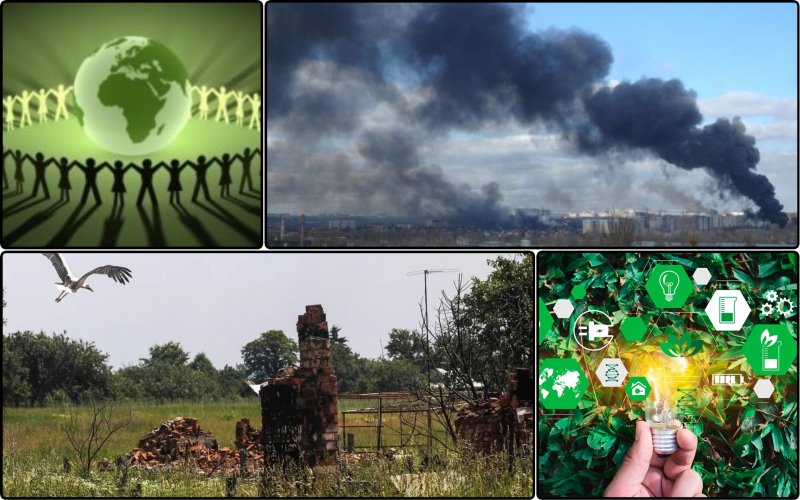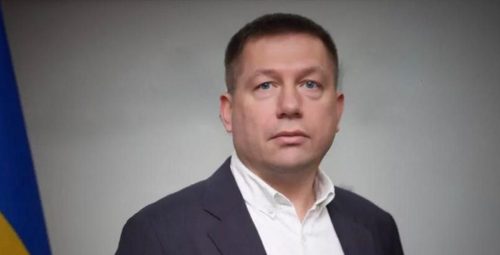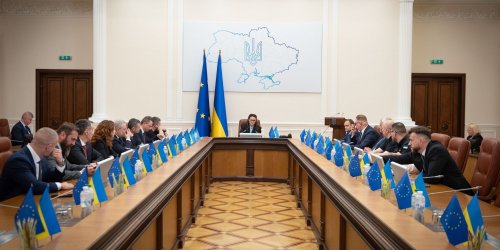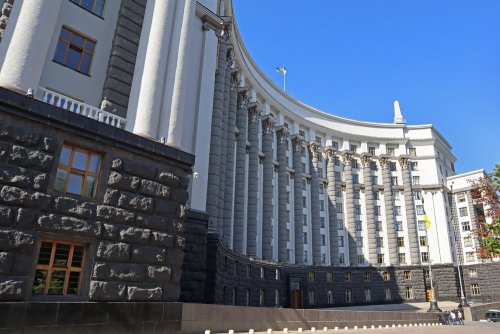After more than a year of full-scale war, Ukraine recovered from the shock of the first months and moved to adaptation and reconstruction planning based on the principles of the European green course and sustainable development. The flagship of environmental policy, which is also an important component of Ukraine's membership in the EU and collection of reparations for environmental damage, is the Ministry of Environmental Protection and Natural Resources.
EcoPolitic decided to find out how the country's environmental policy has changed over the past year.
Environmental policy covers the activities of state bodies and individual organizations to ensure everyone's constitutional right to an environment safe for life and health and to compensation for damage caused by violation of this right. Its implementation requires the development of eco-awareness, sustainable use of natural resources, reduction of environmental risks, proper governance, etc.
Ministry of Environmental Protection and Natural Resources
Over the past year, the agency has been actively involved in calculating the environmental damage caused by the full-scale invasion, highlighting the realities of the war at international conferences, and planning green reconstruction.
Calculating environmental damages according to methods recognized in international courts is the basis for quick recovery of environmental reparations from Russia. For this, the department approved 7 methods, which international experts helped to develop. So far, the amount of losses has reached 3 trillion hryvnias.
The Ministry of Environment admits that part of the natural ecosystems, in particular after the explosion of the Kakhovskaya HPP, has been lost forever and no amount of money will be able to restore them. However, there is still a chance for other ecosystems.
The Dovkillev component is also one of the conditions for Ukraine's membership in the European Union. Despite the systematic statements of the Ministry of Environment regarding the successful implementation of the provisions of the Association Agreement, in February Ukraine received the lowest score from the European Commission – 1 out of 5 possible – regarding the ability to fulfill the conditions of EU membership in the environmental protection cluster.
Despite this, Ukraine is planning to start negotiations on EU membership in 2023, and in two years to be maximally prepared for joining the European Union .
To solve the problem of inconsistency in legislation, in March 2023 the Ministry of Environment created a working group that conducts an initial assessment of the state of implementation of European Union legal acts (EU acquis) in the direction of environmental protection. The analysis will last until June 30, and until August 30, everyone ministries and other central bodies of executive power must submit the corresponding report and proposals to the Cabinet of Ministers.
It is worth noting that in Ukraine there are difficulties with the implementation of already launched eco-reforms.
The eco-community periodically puts pressure on the Ministry of Environment due to its closedness. Thus, the official web resources of the agency provide information on international interactions and the consequences of Russian aggression. At the same time, comments and suggestions from the public are often not taken into account when developing new documents, and some are not even considered.
Verkhovna Rada Committee on Ecopolitics and Nature Management
The Eco-Committee meets almost every week, during which people's deputies consider specific draft laws and urgent issues, as well as submit proposals to the documents of other committees.
The conclusions and recommendations of the ecocommittee are not the basis for the adoption of draft laws in the Verkhovna Rada, but it increases the chance that the relevant decision will be supported.
It is worth noting that the ecocommittee periodically recommends draft laws despite the comments of the public and the position of its members. For example, in April, the department supported the submission to parliament of the scandalous draft law No. 9136 "On improving the management of objects of the nature reserve fund. This was actively opposed by the environmental community and members of the committee of people's deputies from the "Sluga Narodu" faction Yulia Ovchynnikova and Olena Kryvoruchkina.
State Environmental Inspection
From the first days of the full-scale invasion, eco-inspectors began to calculate the damage caused to the environment as a result of military aggression. Currently, the agency uses 7 approved damage assessment methods for land resources, subsoil, forests, water resources, atmospheric air, nature reserve fund, etc.
Their calculations will become the basis for collecting environmental reparations from Russia in international courts.
Eco-inspectors carry out control measures in the field of environmental protection, rational use, reproduction and protection of natural resources. They record violations of environmental legislation, in particular regarding deforestation, poaching, illegal mining, sewage pollution, etc. They also calculate the damages and, if necessary, turn to the law enforcement officers for their recovery. Sometimes the refund can take years.
Every week, the department reports on the most high-profile offenses, the amount of damages incurred and recovered, and also publishes relevant information every day.
It is worth noting that during the period of martial law in Ukraine there is a ban on conducting unscheduled inspections of enterprises. However, from December 2022, the government has allowed such inspections if there is a threat that has a significant negative impact on the protection of the natural environment.
NGOs
The Ukrainian eco-community, as before the full-scale invasion, closely monitors the activities of the authorities, actively criticizes ambiguous decisions and provides comments and proposals for legislative norms. And:
- actively participates in the creation of new protected objects, in particular, the struggle to preserve unique corners of nature from construction;
- participates in public discussions;
- monitors compliance with environmental legislation;
- improves the public monitoring system;
- monitors compliance with European integration conditions;
- prevention of cruelty to animals, etc.
For example, eco-activists began to analyze the quality of water in alternative sources after the occupiers in the winter of 2023 damaged the locks at the Kakhovskaya HPP and the reservoir began to leak. On June 6, the Russians blew up the Kakhovskaya HPP.
The public also expanded the air quality and radiation background monitoring network.





